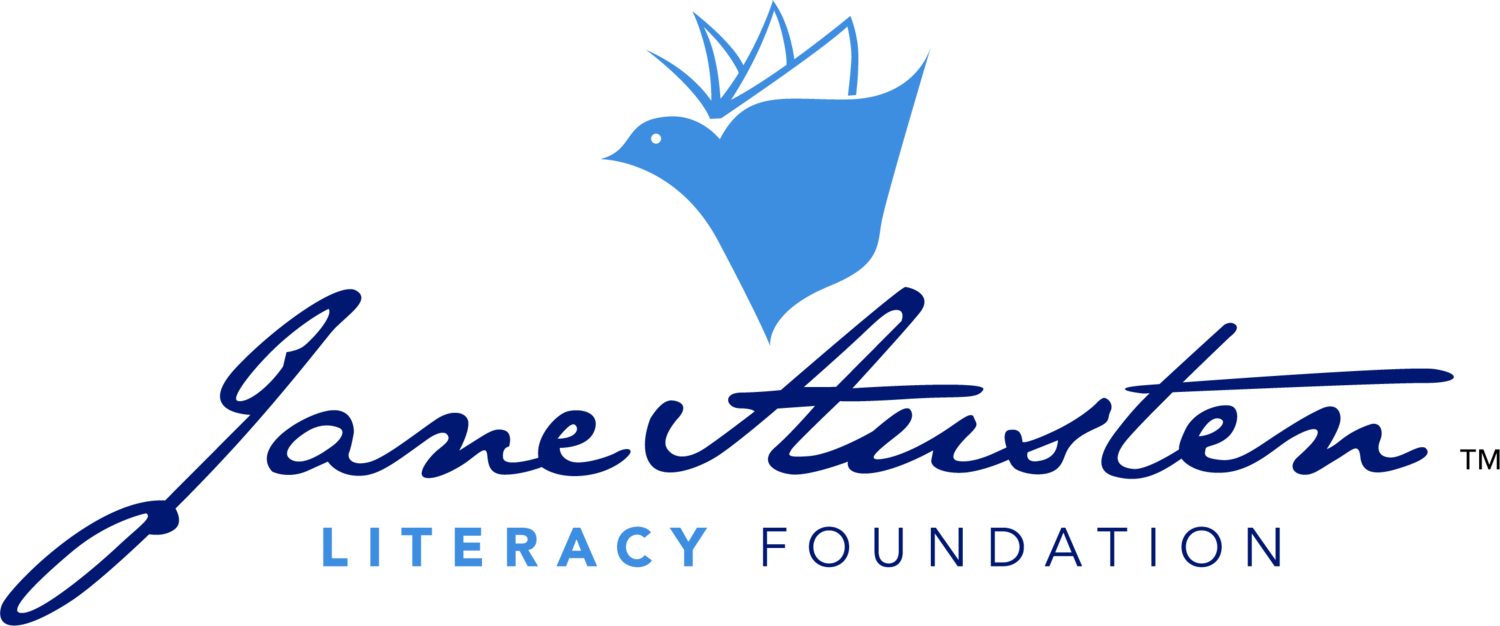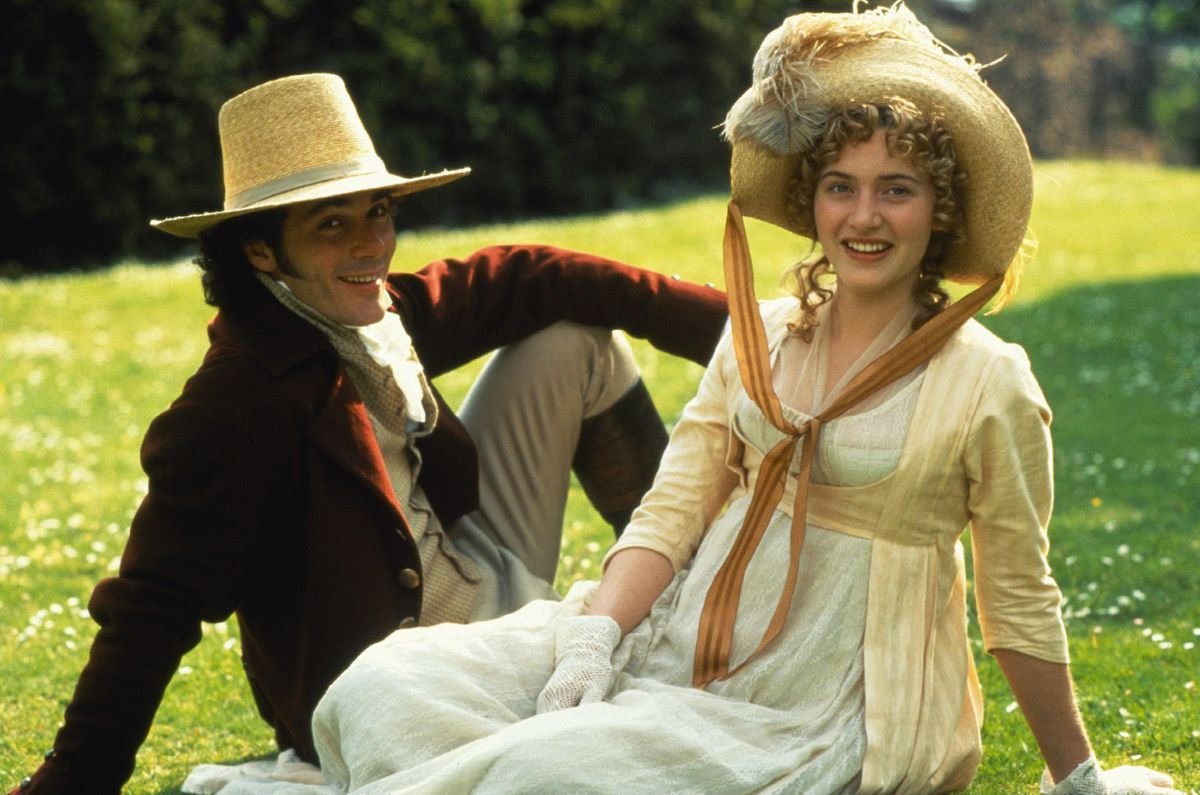SHE IS NEVER QUITE THE SAME TWICE…
Author Nicole Clarkston discusses how Jane continues to inspire writers more than 200 years after she wrote.
Reading Jane Austen is like having dinner with a dear old friend—the kind of friend with whom one can pick up the acquaintance after a long absence and yet feel that little time has been lost. There is comfort in good conversation and like minds, yet a certain degree of intrigue for she is never quite the same twice. Perhaps this is why she appeals to people from so many different walks of life and ways of thinking. Few are the authors whose talent can transcend style to the point that people who don’t even like the genre will say of them, “You just have to read this.”
I’m not sure what took me so long to discover Jane Austen. I loved the classics, and I loved a witty tale and glorious language and happy endings, but for some reason I missed her. For years, I had heard how wonderful she was and how much I would relish her books, but I guess I was stubborn and busy and it just didn’t happen. It wasn’t until I was a conversation-starved young mom, trying to fit in with the other moms of my children’s peer groups and I saw a collector’s copy of Pride and Prejudice gracing someone’s table. Finally, I decided to give in and try reading it.
I found more than just a story. I found an author who could touch deep subjects with a deft hand. She could draw out thoughts and feelings I had assumed were unique to me, and string them along a silver chain of plot that led to the most satisfying conclusions. She somehow knew just when to end my suffering and let Elizabeth Bennet or Marianne Dashwood discover what a real scoundrel was. She understood that the kind of hero I could root for was the kind who would sacrifice his honor for the good of the woman he loved—even if he never won her for himself. She gave us just enough swoony romance to make our hearts flutter and race, but she indulged our minds with enough intellectual richness to engage the eager reader for a second reading, then a third and a fourth.
Marianne Dashwood and Willoughby in Sense and Sensibility (1995)
She was a master of irony and clever phrases, but more than that—she was uncompromising on character. Anyone who survived Jane Austen’s pen and had a happy ending to brag about surely deserved it, after what she demanded of them. I was inspired—not only by her plots and devices, so skillfully wrought, but by her gently biting commentary on humanity.
It made me want to be like her.
I’m not the only one who read a book written over two hundred years ago and felt it so fresh and alive that I just had to pay it homage with my own efforts. Jane Austen has inspired legions of writers, all longing to do just one thing—contribute something to the world that will touch someone like her work has touched them. From software engineers to lawyers and homemakers and medical professionals and every place in between, Jane Austen’s army of disciples are as diverse as the creations they produce.
Watercolor/sketch of Jane by Cassandra c. 1810 (Picture Credit National Portrait Gallery-London)
I recently sat down with a young man of sixteen and asked his thoughts on Jane Austen. This is a youth who enjoys dirt bikes and cowboying, loud music and video games, who builds robots, reads political science, and does Algebra for fun. He’s also someone whose toes curl in dread at the thought of watching a romance movie. In short, he’s the “last man in the world” one would expect to love Jane Austen. But, he does. So, I asked what made Jane Austen’s two-hundred-year-old novels appeal to someone like him.
“The insults!” was his first response.
But then he went on to say how greatly he admired the detail and thought she poured into her stories. Things that might be passed over on a first brush come back with elegant clarity and significance upon second or third perusals. He appreciated how Austen could work the miracle of coincidence to push her plot along without appearing heavy-handed or overly simplistic. One thread knotted into another until the tapestry took on the only logical form, but she wove it so masterfully that the reader could not disentangle themself until the plot had smoothed unto completion.
I’ve also had the pleasure of many conversations with a young lady, also sixteen years old, who enjoys edgy fashion, drawing, shopping and fantasy, and horticulture. Unlike our young gentleman, she lives and breathes romance stories, and loves a good redemption arc (Fitzwilliam Darcy, anyone?). Her introduction to Jane Austen took place a few years ago when she was recovering from a painful back surgery, and our dear author became her solace.
Mr. Darcy, Pride and Prejudice (2005)
Her first observation was the magnificent interplay between characters. Jane Austen’s snappy dialogue and the authentic development of relationships drew her in until they felt like real people. Real people are brilliant, and real people are flawed. Our favorite people make mistakes, and our least favorite people still have some redeeming qualities. That is something she admired in Jane Austen’s writing. Austen makes the chess pieces on her board come to life in three dimensions. And yes, this young lady also loves the sizzling banter and under-handed slights that require a bit of thought to understand.
Dear reader, these are the authors of tomorrow.
Like many others, including myself, they have set their minds and their talents in pursuit of one of the greatest masters ever to wield a pen. They’re not influenced by the prestige that comes with reading “classics” as academics call them. They don’t have a study guide that walks them through all the things they’re supposed to notice as they read her great works, and no one is paying them to slog their way through an old book just because it’s good for them. They just appreciate a captivating story told by a genius at her craft.
I cannot think of a more perfect author to study if one is aspiring to hone their talents. Jane Austen was the one who inspired me to fertilize and prune my own work until it was something half-legible, and she’s doing that for countless others to come after me. And if they’re very diligent, terribly gifted, and maybe a little lucky, perhaps one day someone will say of their writing, “It doesn’t matter who you are or what you like. You have to read this.”
Austen, Jane. Pride and Prejudice. Penguin, 1813
©️Nicole Clarkston 2022. Nicole Clarkston is a book lover and a happily married mom of three. Originally from Idaho, she now lives in Oregon with her own romantic hero, several horses, and one very fat dog. She has loved crafting alternate stories and sequels since she was a child, and she is never found sitting quietly without a book or a writing project.
Nicole also writes novellas as Alix James. She just released her newest novella, A Proper Introduction
31st October to 18th December
COMING SOON! Download a hosting pack with recipes from Jane Austen's family cookbooks, games to play, a hosting guide, raffle, playlists and lots more. Host your own Jane Austen tea for Literacy in person, or virtually, to have lots of fun and raise money for literacy programmes and activities.
Launching mid-October, with new recipes, games and a choice of designs to download.






